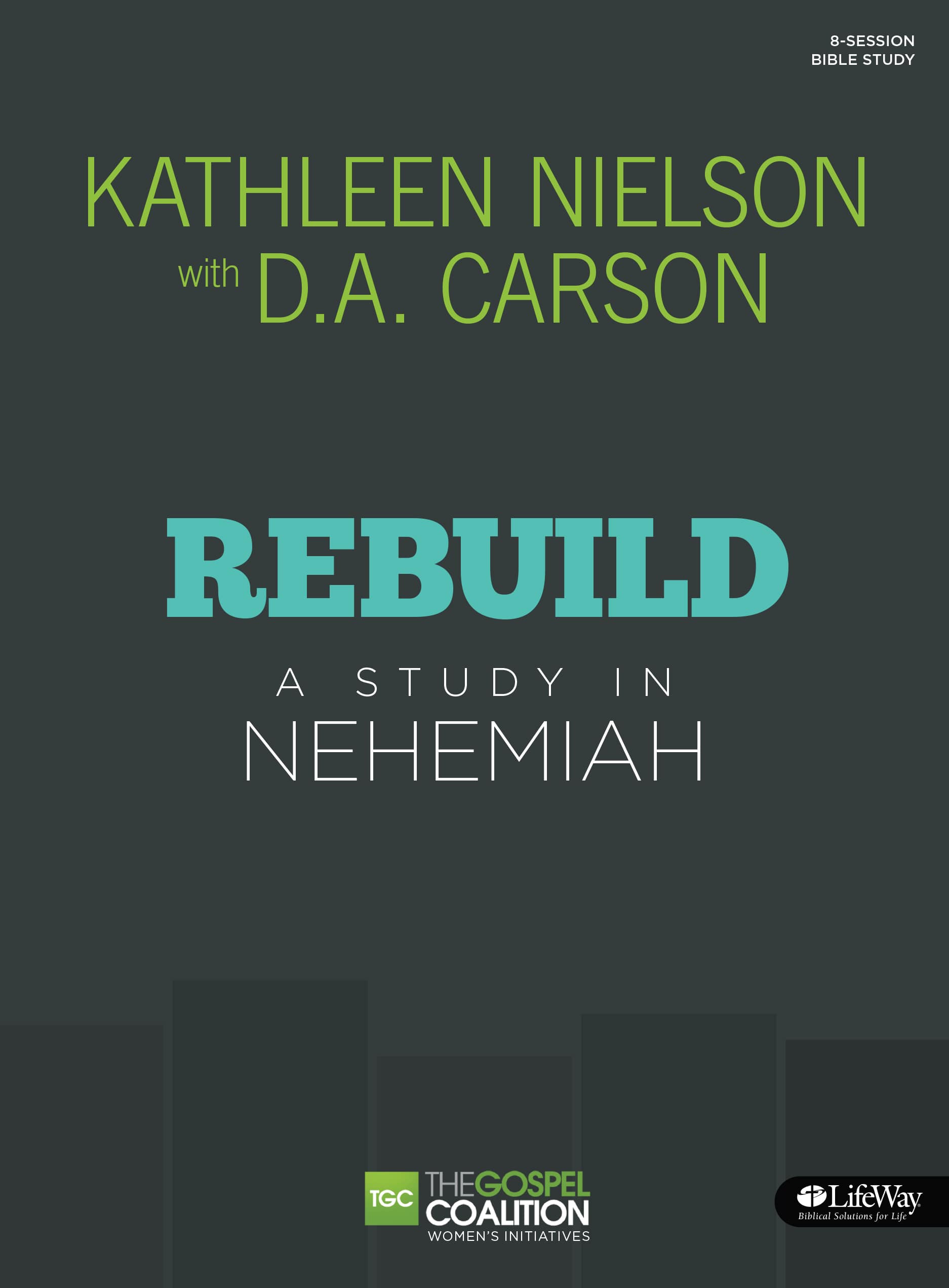Watch this sample teaching segment of Rebuild: A Study of Nehemiah. Then read an excerpt of the Bible study below.
It had been a month of feasting, worshiping, and celebrating in Jerusalem. It had also been a month filled with hearing the Book of the Law, and learning to understand and obey it. The people had just gone out to the hills and brought back tree branches with which they had constructed booths on their roofs and in their courts and in the square, all over the city, in order to celebrate the Feast of Booths as God has commanded it through Moses (see 8:13-18). And now, before they dispense, they gather for a final meeting, one of confession and repentance.
This confession is first of all prepared for and directed by their leaders. The leaders throughout this month prepared the people's hearts through the reading and teaching of God's Word. Doubtless other preparations grew from that process, including the people's clothing and appearance, which outwardly portrayed their inward repentance. They had also separated themselves from all foreigners. Clearly, this time of worship and confession was set apart as a crucial and climactic gathering. The Levites assembled to lead the people in three hours of reading from the Word and then three hours of worship and confession.
This confession is not just individual but also corporate confession. These people have been prepared to come before God as His people, to confess their sins. What a challenging scene, one that helps us realize just who we are as part of God's people and how much our own lives are bound up with those of our brothers and sisters in the body of Christ. My sin is my own before God, and yet my sin is part of the story of God's redeeming a people, through the blood of His Son. This scene should make us take the corporate confession we practice in our own worship gatherings seriously, as we confess our sins together, knowing that God through Christ redeems a people for Himself. We are a sinful people who need God's mercy, a people who repent because we want above all to glorify Him and together show forth His excellences to a dark world from which we have been rescued.

This confession depends on God, not us. It is about God first-and then us. Often we tend to pour out before God words all about ourselves and how badly we've behaved and how sorrowful we feel and how great are our needs. This is not all bad. We can pour out our hearts before a merciful God. But that is not where this prayer starts. This prayer of confession does not depend on how awful the people feel. It focuses on God, first, and who God is. "Confession" can mean not only laying out a sin but also a declaration of truth. The truth declared in this scene begins with God. The call to worship in Nehemiah 9:5 lifts up the people's eyes to an eternal, glorious, exalted God.
This article is excerpt from Rebuild: A Study of Nehemiah.